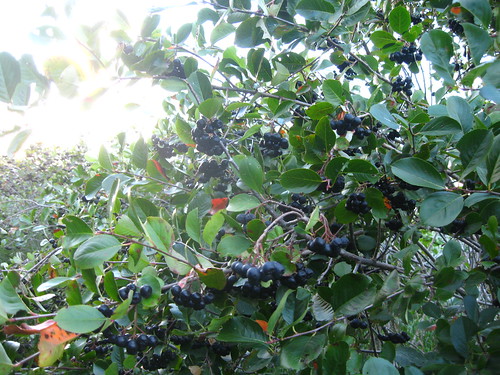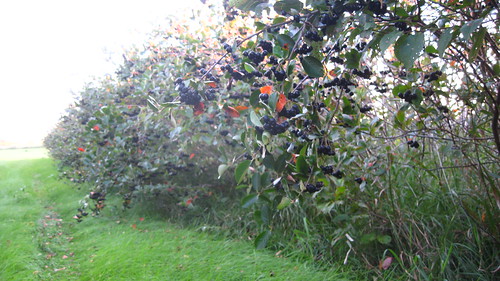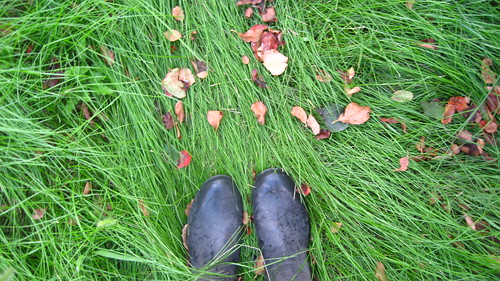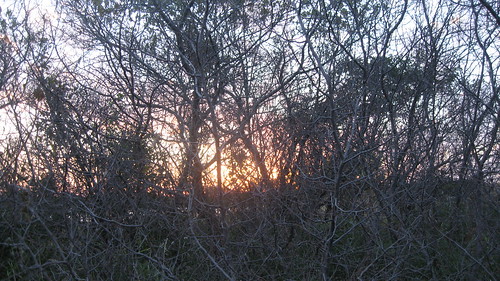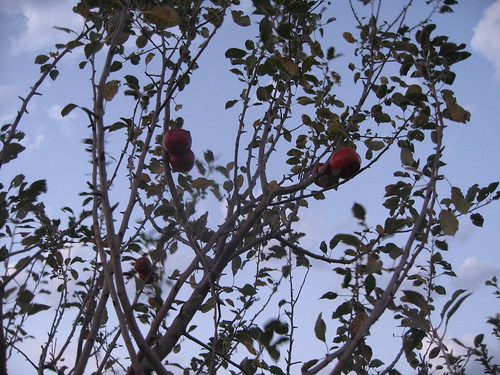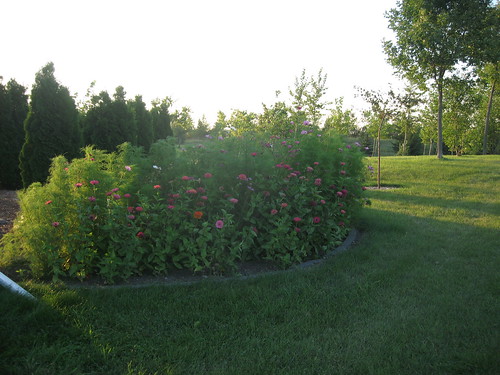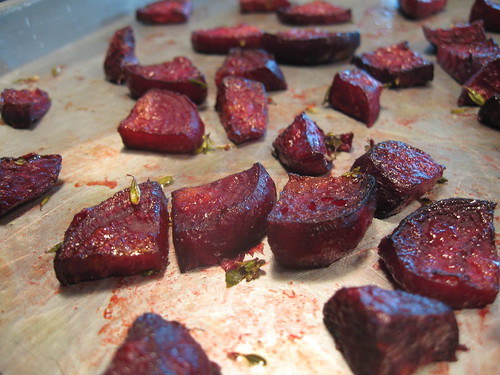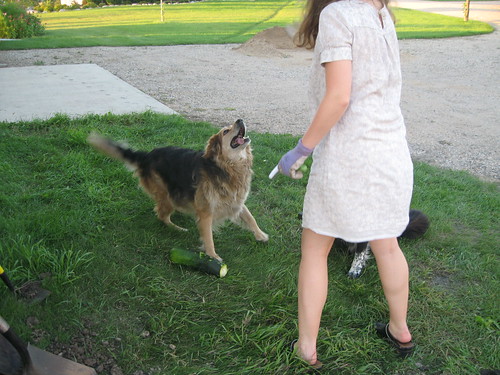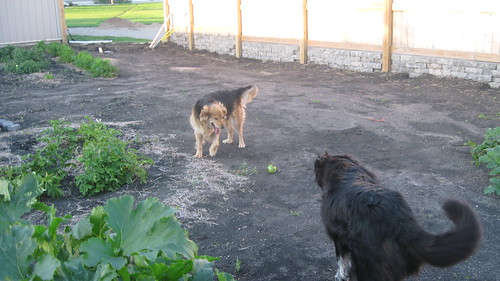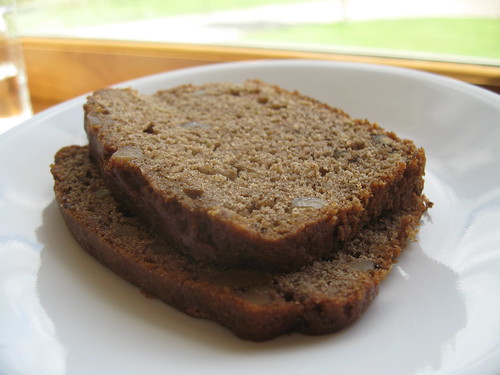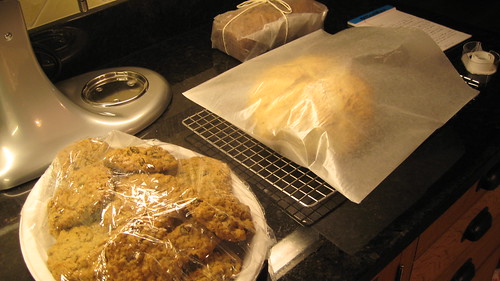(I keep swearing to myself that I will start making regular posts WITH PICTURES, but somehow it never happens.)
This lecture had either a more followable narrative than the other two, or I just understood the subject matter better-- it was more focused on one subject than the introductory ones. There is always something satisfying when the quotes used are ones you remember and the lecture reinforces the lines of thought you created by reading the text, instead of just correcting them.
Hermeneutics! I mentioned earlier that this particularly interests me in a very vague way and I have wanted to know more about it. The history that Prof. Fry gave at the beginning of this lecture about eighteenth century writers who "took meaning for granted" and were instead interested in evaluation and moral questioning and then the progression to hermeneutics during the Romantic era and into the twentieth century, seems to me rather parallel to the way literary education progresses through a person's life in the US (though I can really only testify to my experience). Grade school, for me, was never concerned with Literature in any sense and was appropriately called "Communications". If we read, it was in an effort to learn by emulation. The word "Literature" didn't appear in the titles of courses until 11th or 12th grade, and, I think, were courses that only college-bound students were expected to take (the others kept on with "Communications"). I don't know exactly what was taught in these courses, because I never finished ninth grade, but judging from the general ignorance of my siblings about anything concerning literary theory, I think it was a whole lot of horrible reading journals and close-reading for the sake of close-reading. Most people, I heard, never wanted to do the reading and I know my sister leaned heavily on online summaries and interpretations like Cliffnotes. I don't think it was that the concept of plagiarism was necessary misunderstood, but the fact that the teachers were probably getting their materials from similar sources and the concept of
interpretation and ways to go about it were never properly explained, so that the students were left with the idea that Cliffnotes was the only place where they could find the one right answer. As if there was one correct answer.
Some of these students end up in English classes in college and find that original interpretation is expected and probably don't really know how to go about it. Some of them, like me, perhaps stumble into ways of interpreting that are sponged up from reading articles that use various traditions, and interpret without any consciousness about what they're doing. New Historicism seems to be a very popular tool in this respect. Before taking a course on theory this problem of interpretation was completely maddening to me and, though I found I was pretty good at writing papers, I felt like my classes were all a joke for accepting my drivel and that there was some big secret that nobody was letting me in on.
The point of this is that (if I am to try to bridge my historical horizon with the one mentioned above) moving on from simple clarity in communication, as taught in grade school, to interpreting literature in college requires a consciousness of hermeneutics and the existence of theories that are often inherently at work in a student's literary essays. I don't profess to have any adequate knowledge of hermeneutics (yet!) but after being exposed to literary theory I started to feel the legitimacy (even if it does feel a bit contrived sometimes) of English as a subject. Maybe I wasn't listening properly in "Introduction to Literature" but I don't think hermeneutics was mentioned, though now I feel that it should have been-- in simple terms.
So, this was one of those (commercially exploited) "ah-HA!" moments that I love about English, and that I experience as I explore and understand more about the structure of the subject. If you had told me four years ago that there were constructs in place about how to comprehend understanding and interpretation in literature, I would have very relieved. YES I had the internet, but "hermeneutics" isn't a word that is very descriptive to the outsider and, truthfully, I was very insecure about what I could do and what there was out there to know. I didn't want to ask stupid questions. I was just getting by.
Well, thankfully this reflection is NOT being written for grading purposes.
The hermeneutic circle, as I understand it:
If you are to start reading a book, assigned for class (for example) and you are expecting to write a paper on it later, you are probably already aware of the context in which it was written. You signed up for "Women Writers of the Nineteenth Century" or "Colonial American Narratives" or something. These courses are already structured around certain themes that have been lectured at you, at least, if you don't already have academic knowledge of historical events, stylistic themes, similar works-- even (and especially) cultural knowledge that makes certain words, phrases, inclusion and absences seem significant in some way. Even before beginning the book, you approach it with the beginnings of understanding. Gadamer in the reading for this lecture ("The Elevation of the Historicality of Understanding to the Status of Hermeneutic Principle") calls this a fore-having or a fore-project.
You read the first sentence or paragraph and it impresses itself on you in some way. The knowledge that constitutes your fore-having, also referred to by Gadamer as your prejudice, begins to take on this impression and changes to accommodate it as you work your way through the book; always understanding as much as you have read in terms of your original fore-project as the fore-project is constantly mutating to fit with your increased understanding of the part you have read.
This brings up the question of whether you can actually come to the point of knowing the whole, in the elusive "right" way, if your understanding is always based on prejudices that are removed from the text. This question is concerned with the relationship between the reader and the text (and is complicated by the author issues in the last lecture) and whether there is really something definite that it is trying to communicate. Gadamer, like the Foucault and Barthes in the last lecture, believes that "the meaning of the text [always] goes beyond its author". As far as I can see then, because your understanding of the book that you are reading will always depend on your fore-having it will never be exactly that of another interpreter. I can't find the passage, but I think the article mentions that the possibilities of interpretation are infinite?
At any rate, as explained in the lecture with the use of the word "plastic," there are definitely some interpretations that are wrong, that are blinded by a fore-having that is not sensitive to the newness of the book. The main thing Gadamer emphasizes to combat these bad interpretations is an awareness of one's own prejudices and a "conscious assimilation" (723)* of them. (Also, an attack on Historicism based on the idea that these prejudices can never actually be removed to facilitate objectivism, so one shouldn't try because it removes the possibility of combining horizons and finding some intelligible "truth for ourselves".)
I am not sure that I entirely
got the digression about classicism, but I think I've grasped enough to begin researching on my own.
I really do think that his (apparently indebted to Heidegger) description of the process of understanding is quite remarkable. Sometimes, when I feel that my creativity is completely tapped, I have to remember that this is why I like studying English. It combines, or steals, so many different concepts from so many fields and attempts to explain life. Other subjects purport to do the same thing, but my affinity will always be with the written word and fiction. Maybe I am just impressionable, but I sometimes come across theory, like this, and am incredibly taken by the writer's awareness and ability to describe such an innate process. And maybe this makes me a bit pathetic, but it makes me feel a little less alone in the world.
*I'm trying to put at least one page number in every post so that, in the inevitable case that I lose the syllabus (ie. am too lazy to find syllabus and look up the lecture number), I can later find the article in the anthology.





